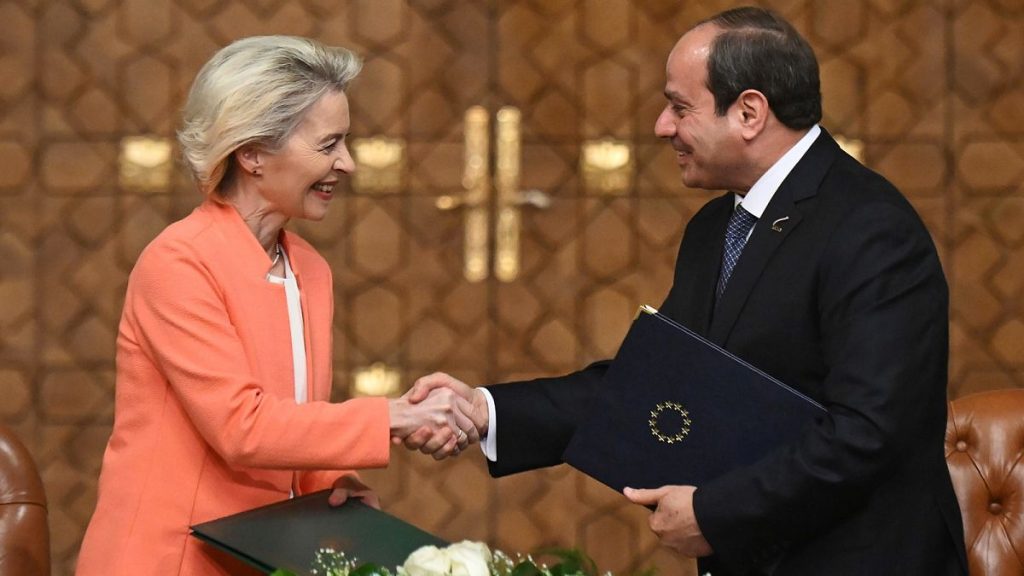The European Union has found a new strategic partner to address irregular migration in Egypt. The EU recently signed a €7.4 billion comprehensive partnership with Egypt, a significant increase compared to deals with Tunisia and Mauritania. Egypt is facing economic turmoil due to various factors such as inflation, debt, trade deficit, and global disruptions. The EU’s partnership aims to provide support to stabilize Egypt’s economy and reduce irregular migration flows. The deal includes €5 billion in concessional loans for macroeconomic reforms, €1.8 billion for investments in renewable energy and digital connectivity, and €200 million to combat human smuggling and trafficking.
There has been a notable increase in asylum applications by Egyptian nationals in the EU in recent years, with most claims coming from Italy and Greece. The EU sees the holistic approach of boosting Egypt’s economy as key to managing irregular migration. Egyptian migrants often travel through Libya or Turkey to reach Europe, influenced mainly by economic factors and employment opportunities. Push factors for migration include repression of human rights and security issues, such as the anti-terrorism campaign in the Sinai peninsula. The EU acknowledges the need to work with Egypt to address these issues while supporting economic stability.
Concerns have been raised about the partnership’s focus on fighting human trafficking rather than addressing underlying issues contributing to Egypt’s economic crisis. Critics argue that the EU’s emphasis on economic support may fail to address the rule-of-law decline and human rights abuses in Egypt, which have deterred foreign investment. The partnership’s funding, provided as untied and undesignated, may give the Egyptian government discretion over spending. Human rights organizations call for clear conditions linking financial aid to respect for fundamental rights and the rule of law to avoid legitimizing authoritarian regimes.
The EU’s partnership with Egypt also raises questions about the fate of refugees and asylum-seekers from other countries who have sought refuge in Egypt. The pressure to reduce irregular migration may lead Egyptian authorities to increase repressive measures, impacting vulnerable populations from war-torn nations. Asylum seekers in Egypt already face challenges such as high unemployment and reliance on humanitarian assistance. Critics warn that the partnership could worsen conditions for refugees and asylum-seekers in Egypt, potentially leading to dangerous and deadly migration routes.
The EU’s deal with Egypt emphasizes economic support and migration management, but human rights and rule-of-law concerns persist. The partnership aims to stabilize Egypt’s economy, but critics argue that addressing underlying governance issues is crucial to foster sustainable development. The EU faces pressure to ensure that financial aid is tied to respect for human rights and the rule of law to avoid enabling authoritarian practices. The impact of the partnership on vulnerable populations, including refugees and asylum-seekers, remains a key concern as efforts to curb irregular migration may lead to increased human rights violations and risks for those seeking safety.


